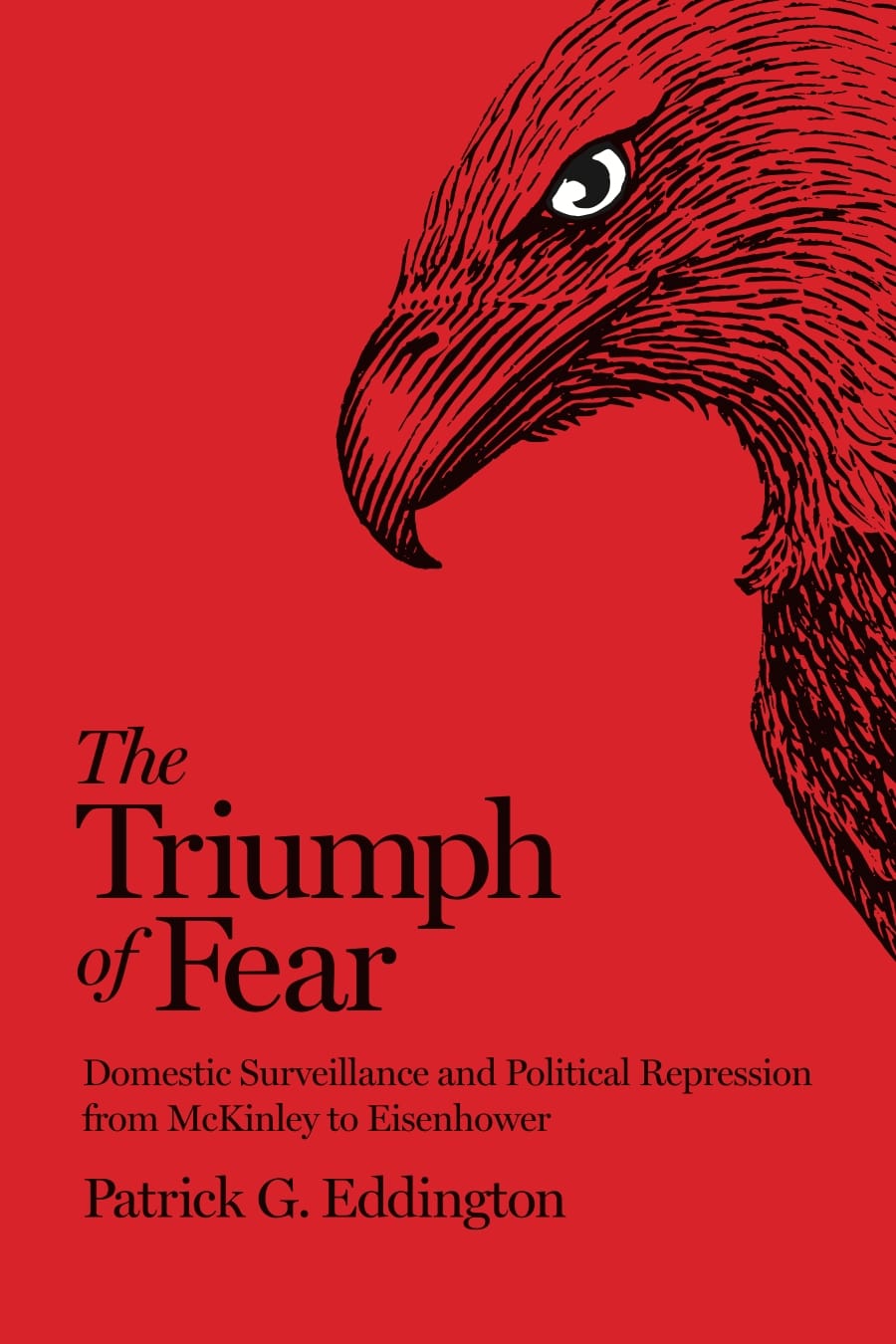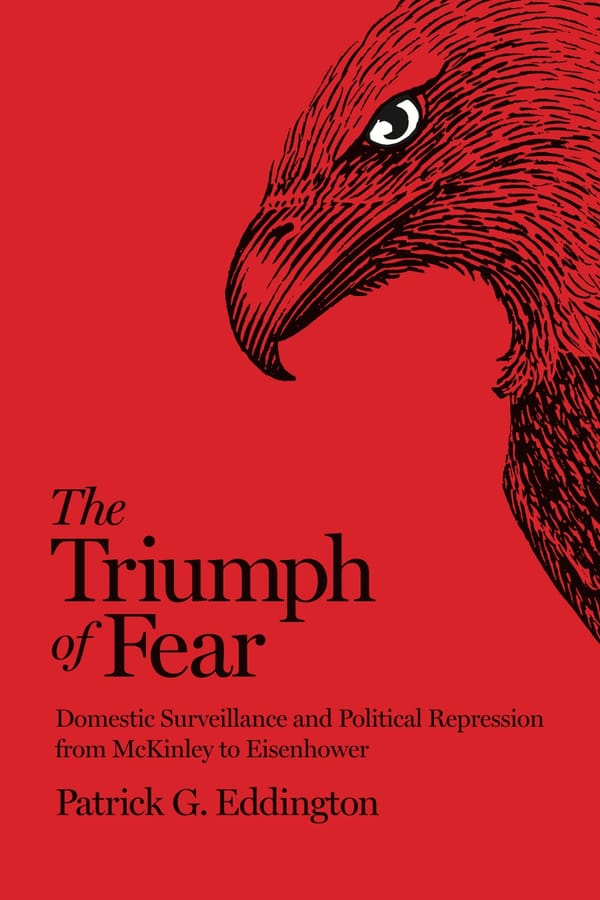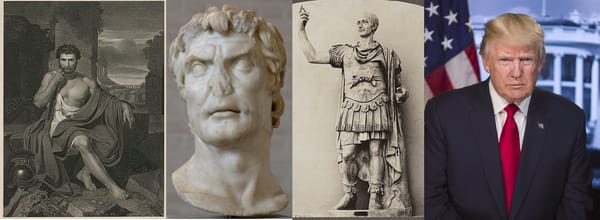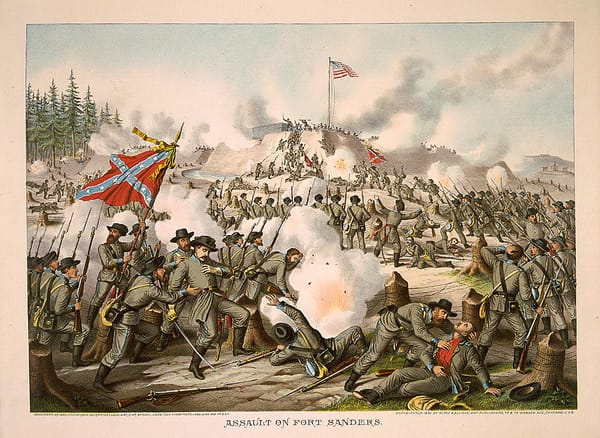Political Repression, American Style
The story it tells is not, unfortunately, an April Fools joke.

On Thursday, the first book in my two-volume series on domestic surveillance and political repression in America will be officially released. It could not be more timely or relevant to the moment we're all living through now.
In 2015, I began the research phase for what has become The Triumph of Fear: Domestic Surveillance and Political Repression from McKinley through Eisenhower (or TOF, for short), published this week by Georgetown University Press. It was 10 years ago this month that I completed what remains one of the largest online timelines of its kind about federal government abuses of constitutional rights--a project that served as the initial organizing principle for TOF. I created the timeline and the book project as much out of frustration as anything else.
After I left the House of Representatives in the fall of 2014 and began my nonprofit public policy career working issues at the nexus of "security" writ large and the Bill of Rights, I looked around for a one-volume history of all the previous rights-trampling episodes that previous American presidents, Congresses, and federal courts had engaged in since the late 19th century. I chose that era as a starting point in no small part because of the only previously published book on the topic that came close to what I had in mind: Robert Justin Goldstein's Political Repression in Modern America: From 1870 to 1976.
In its day, Goldstein's book was groundbreaking, but it also had important limitations. His heavy emphasis on conflicts between organized labor on the one hand and major corporations and government at several levels on the other was, in my view, a key limitation. Goldstein also wrote the book utilizing almost exclusively secondary sources, another drawback in that it left his narrative and conclusions dependent on the reliability of the scholarship of others. I set out to write something I hoped would be more holistic and that relied on primary source material almost exclusively.
It was naive of me to believe that I could cover so much of the very dark and often secret history of America in a single volume. Ironically, it was the COVID-19 pandemic more than anything else that ensured this project would in fact become a multi-book endeavor.
I had just completed my field research at the Gerald R. Ford Presidential Library on March 13, 2020, when the federal government officially shut down due to the spread of an unknown and decidedly dangerous virus. By that point, I knew I had enough material to write a narrative that would cover the period from the assassination of President William McKinley through President Dwight D. Eisenhower's last day in office. Ultimately, my editor at GU Press, Don Jacobs, agreed to my proposal for a two-book series, with TOF officially published this Thursday, April 1.
The story it tells is not, unfortunately, an April Fools joke.
Some of the stories you may have heard about before: the first post-WW I "Red scare" and its associated political persecutions of Americans and immigrants alike, or the outrageous internment of over 100,000 innocent and loyal Japanese Americans in the wake of the Pearl Harbor attack.
But the violations of Americans' constitutional rights were also perpetrated by entire congressional committees, most notoriously the House Committee on Un-American Activities (most commonly known as HUAC), which actually engaged in wiretapping itself despite the Constitution giving no police powers to Congress.
Here also you'll find accounts of some of the worst and most far-reaching rights-violating federal court decisions in U.S. history. Of particular note is the infamous Reynolds case, in which the Supreme Court created out of whole cloth the extra-constitutional construct of the "state secrets" privilege--a legal weapon President Donald Trump is using to try to conceal the methods by which his regime is deporting human beings without any of the due process required under the Constitution and prevailing immigration law.
There are also stories of unsung heroes, inside and outside of government, who fought the repressive policies and toxic political climate of the day.
The final chapter offers a look back at the 60 years covered, as well as the key episodes of repression and the reform efforts that took place from John F. Kennedy's short time in office up through the end of 2023.
This book went to the printer shortly after Donald Trump made the biggest political comeback in over a century, promising a "revenge tour" against his alleged political enemies. The Triumph of Fear is now available to you to use as means of comparing Trump's ever-increasing number of constitutional affronts and rights violations with those of his predecessors.
It also serves as a reminder that, as Ronald Reagan observed nearly 60 years ago
Freedom is a fragile thing and it's never more than one generation away from extinction. It is not ours by way of inheritance; it must be fought for and defended constantly by each generation, for it comes only once to a people.
I don't buy his "only comes once to a people" line, and there's no small irony in the fact that the party he once led has become a political lapdog and cheerleader for what Trump 2.0 is doing to the Republic. But Reagan's essential point, and warning, remains valid.
So I ask this of you: 1) read the book and watch the book launch event, 2) tell everyone you know about both, and 3) remember that whether Trump 2.0 becomes our Republic's "extinction-level" political event is not up to him, it's up to us.
Trumpismus delendum est
Thanks for reading the Sentinel. If you're not a subscriber, please consider becoming one today.





